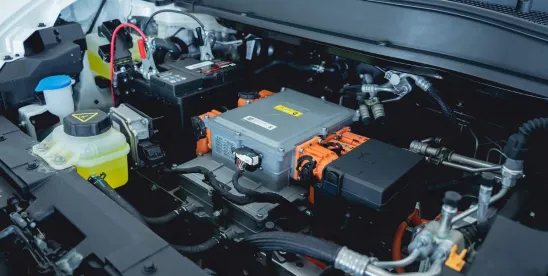The rise in trade secrets litigation in the electric vehicle (“EV”) sector continues with Tesla filing another lawsuit: this time against its own equipment supplier. On June 14, 2024, Tesla filed a complaint in the Northern District of California against Matthews International Corp. for trade secret misappropriation, along with breach of contract and unfair business practices. The electric vehicle giant alleges that Matthews exploited Tesla’s proprietary dry electrode battery information by incorporating that confidential information into Matthews’ own patent filings and distributing that information to Tesla’s competitors.
Tesla’s complaint highlights the importance of its dry electrode battery development, describing it as “the very heart of Tesla’s business.” In fact, Tesla has manufactured over 50 million battery cells using this proprietary technology, as reported in the complaint.
Tesla and Matthews began their relationship in 2019 when Matthews began supplying equipment that Tesla used in its dry electrode battery manufacturing process. During the course of their relationship, Tesla purportedly gave Matthews access to confidential information regarding that manufacturing process and Matthews “agreed, in writing, that it would hold those secrets in the strictest confidence.” But, according to the complaint, Matthews used that information to pursue its own patent applications, resulting in publication of Tesla’s trade secrets. Additionally, Tesla alleges Matthews sold dry electrode battery equipment—which included proprietary information—to Tesla’s competitors.
Tesla is seeking a preliminary and permanent injunction to prevent Matthews from continuing to use its trade secrets and for a transfer in ownership of all of Matthews’ patent applications pertaining to Tesla’s trade secrets. Tesla also seeks monetary damages in accordance with its claims.
In a press release issued after the complaint was filed, Matthews denied any wrongdoing and noted that Tesla failed to identify with particularity the trade secrets it alleges Matthews misappropriated.
Tesla’s lawsuit underscores the critical importance of safeguarding intellectual property in the fiercely competitive automotive industry. It demonstrates EV companies’ willingness to legally enforce their trade secrets in this competitive field. Companies like Tesla continue to address intellectual property violations relating to EV manufacturing and development technology. For companies confronting misappropriation of their trade secrets or defending against such claims in the EV or technology sectors, Proskauer’s extensive legal and technical expertise, combined with a multidisciplinary approach, can enhance the likelihood of achieving favorable and effective resolutions to complex trade secret intellectual property disputes.




 />i
/>i
